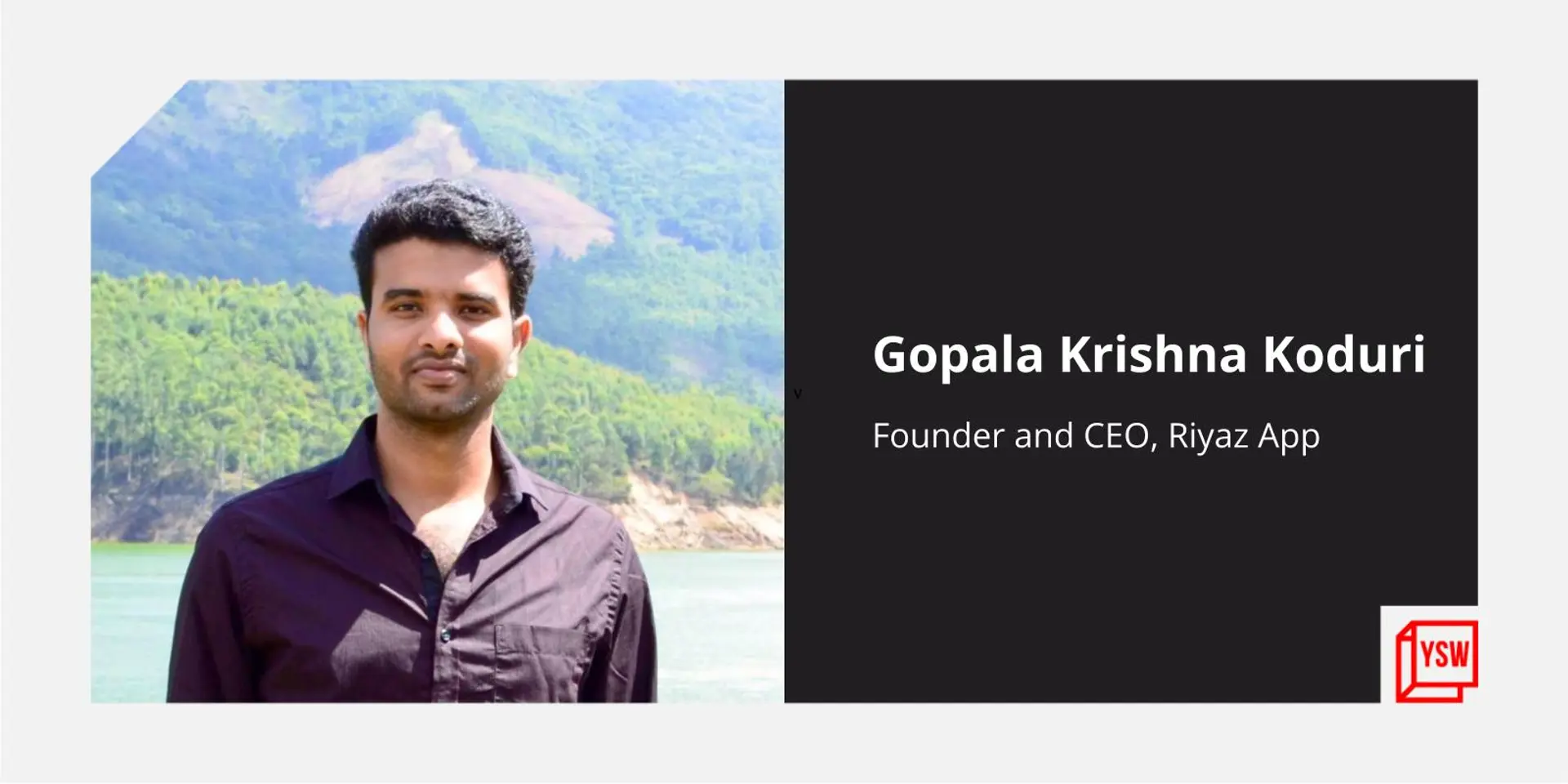Music learning app Riyaz hits the right note for self-learners with its advanced technology
Developed by MusicMuni Labs, Bangalore, Riyaz is an AI-based e-learning platform that helps music hobbyists improve their vocal skills.
All of us like to hum and sing no matter how cacophonous it might get for those around us. But, what if there is a tool that makes us hit the right notes at the right beat, making it more soothing for the ears?
Gopala Krishna Koduri was thinking along similar lines when he came upon the idea for , an AI-enabled 24X7 music buddy in the form of an app. This digital music tutor has over 130 exercises and 200 raga and song lessons across disciplines such as Carnatic, Hindustani, Bollywood, devotional and western music. It has over 50+ Hindustani classical music courses covering all the popularly taught ragas and 24+ Carnatic music courses.
The app was launched in 2019 by MusicMuni Labs Private Limited owned by Gopala, a spinoff of the Music Technology Group, Universitat Pompeu Fabra, Barcelona, Spain.

Riyaz app
Inspired by culture shock
Gopala, the CEO and Co-founder of Riyaz, was born and brought up in a small town in Andhra Pradesh where his exposure to arts and culture was very limited. But when he joined IIIT-Hyderabad for his BTech, he realised that he missed out on cultural diversity while growing up.
“It was during my first year in college when I heard a group of people singing in Hindi. This was a kind of culture shock because until then, the language was simply a subject that I had to mug up in school. I realised how beautiful the language and its songs were,” recalls Gopala.
He began attending concerts and music festivals to educate himself more about the diverse musical heritage of India. He also felt compelled to share this music literacy with more people through technology.
“This generation understands the language of technology, which is why I used my coding skills and showed them graphically the complexities of music. It increased their appreciation towards music in general,” quips Gopala.

Riyaz App
How it works
Riyaz helps to calibrate the different elements of the user’s voice, such as range, pitch, base note and frequency. There are vocal references for different songs and ragas. When the user starts singing, a graph shows how much they are matching with the reference.
With the help of the app, users can get real-time feedback on their singing. While it is not a replacement for the traditional ways of learning music from a ‘guru’, the app is particularly helpful for self-learners and music hobbyists alike.
“The graph and the instant feedback helps the singers identify their shortcomings and mistakes, and help them to improve upon them,” Gopala says.
The app also has vocal warm-ups, singing challenges, a vocal monitor, and a song library. Like Instagram reels, there are short videos of people singing different songs which can be liked, saved and shared on other social media platforms.
As for monetisation, a user can access the app for free for 10 minutes after registration. Post that, users can go for subscription plans that are priced between Rs 499 and Rs 1,999.
Although there were plans to raise $2 million in funding, the team took cognisance of the market scenario during the pandemic and reduced their target. They raised $1 million in pre-seed and seed rounds, with the latter round held in 2021. The seed round saw the participation of investors such as Better Capital and Multiply Ventures. Earlier, they had also received a grant of €150,000 from the European Union for 2016-17.
Pandemic milestones
Gopala reflects that in his last interaction with YourStory, he spoke about how the app was focused on Carnatic and Hindustani music. However, this had to change as it saw many non-classical singers and music hobbyists feel disconnected.
"We noticed that music hobbyists were dropping off Riyaz. Hence, we decided to launch a feature that would allow people to sing and upload any song on the platform instead of only classical music pieces. The platform would then convert the song to a learnable format for other singers," says Gopala.
This strategy helped Riyaz retain the membership of music hobbyists, especially those from tier II and III cities. It also enabled talented musicians to guide music hobbyists through their own content.
While the pandemic saw music apps becoming popular among the masses stuck indoors, Riyaz maintained its separate fan base by improving its pedagogic features.
"Most of the apps that you see in the market, like Karaoke and others, do not have the technological stack to enable learning. They are more inclined towards entertainment while we help people interested in music to learn how to sing by focusing on the pitch, range, rhythm and other elements of singing," Gopala says.
The app saw a 100 to 150 percent surge in usage, with about 100,000 downloads every month, according to the founder. Although this peak demand has now reduced, Riyaz has maintained approximately 40,000 downloads per month.
The higher purpose and its challenges
Numbers aside, for Gopala, the higher purpose of the app is to spread music literacy. He feels that traditional forms of learning music at a music school or from a guru limits the accessibility to music to only those who can afford to pay the fees. He also believes a music literate audience would inspire artists and musicians to up their game.
“The absence of music literacy brings down the quality of music that artists create. They feel the need to level down their artistry because the audience is perceived to be low and not musically literate enough to appreciate high calibre musicians. So, it is my mission to spread music literacy in society to bring that common denominator - the audience - to a higher level. Music needs to become more democratic,” Gopala asserts.
Today, Riyaz has 2.7 million downloads with 1,50,000 monthly active users, among which 25,000 are paid users, spread across the world and India. The app is supported by a team of 25 musically-inclined individuals besides Gopala.
Future plans
With market competitors like Voxtrain, Smule, SingTrue, Yousician and others, Gopala says that the next five years are crucial for Riyaz as he wants the platform to become the largest community of music learners and hobbyists in the world.
“So far, we have only seen social media networks of musicians, but not a platform for music hobbyists to learn singing themselves. With the help of Riyaz app and its components, we hope these self-learners would be able to improve their skills and go to a much higher level,” he concludes.
Edited by Anju Narayanan








